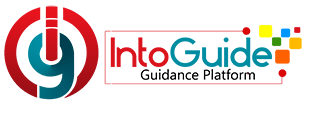Data software has become the most efficient tool for businesses of all sectors. It helps organize information, tracks data, and integrates efforts from all departments. Workforce intelligence software is especially important to business management.
Before we can understand all the ways workforce data software benefits a company, it is important to understand what it is and what it does.
Understanding Workforce Data Software
A basic definition for workforce data software is a program that helps improve efficiency and productivity. It is especially relevant when managing employees. Not only does it help manage their workloads, but it also helps match the right job to the right person.
Management is responsible for creating tasks and assigning them to the employees. While the employee is responsible for completing the task, the manager ensures it is done correctly. With workforce data software, overseeing the work and tracking its progress is more efficient.
How the Software Works
Managing a workforce is a lot of work that can become complicated as a company grows. It is easy to access analytics that breaks down positions with tasks with the right software. Company leaders can gain powerful insights on composition, each task’s time, and what trends are happening within the company.
Another feature of this software is that it tracks information for easier analysis. There is a lot of data that is gathered when completing tasks besides time spent on each task, including performance level, cost, and return on investment. Any information that a company needs to be tracked is included in the software to help store and sort it.
Once the information is stored and sorted, it is easier to analyze. Whether it is a manager, analyst, or company owner, the ability to easily interpret data is key to improving results. If products are not performing, processes are not efficient, or there are weak points in the supply chain, analyzing the information will show that in the data.
Who Benefits from Workforce Intelligence Software?
Workforce data intelligence software is most relevant to larger companies with many employees. The most common users include investors, corporate strategists, HR teams, and government entities. Anyone who needs an HR database and tools for team composition information can benefit.
Businesses and individual workers use this software if they are looking into large investments, acquisitions, or needing to predict trends. This can be applied to individual investors, venture capitalists firms, heads of corporations looking to improve their efficiency, and more.
With the data gathered in the software, companies can compile information relevant to growth. A business can use data to help signal when it is time to expand into a new market. Metrics can also help determine how to allocate resources, bring in partners, or expand specific departments within the company.
The size of the company is not as important as the needs of the business. If a small to mid-size company is looking to compete in any area mentioned above, they would likely benefit from this type of software.
Large companies generally do not have the staffing to analyze their processes up-close on a routine basis. The data gathered in the software analytics can reveal pain points to the company. The company can address the problem and improve its efficiency by showing inefficient processes.
Many companies even find ways to cut costs that occur from inefficiency. This type of research would take countless hours and a large chunk of the budget to complete without the right tools. Having the right software brings accurate information to help management make the best decisions.
The Benefits
When a company implements this software into its structure, it can expect more benefits than those already mentioned, including:
- Consolidated reporting: pulling information into one central location eliminates the need to access multiple systems.
- More comprehensive employee information: easily access and analyze performance history, tenure, job location, salary, trainings received, current manager and department, and relevant work history.
- Customization: build custom reports, view industry trends as they happen, and organize the most valuable information when making decisions.
- Efficiency: detect inaccuracies or inconsistencies within the business to correct them quickly and improve overall company processes.
- Access to more information: besides the company’s data, get access to other public and private companies, including government filings, to help navigate your industry or size up the competition.
- Dependability: getting the most accurate information from workforce software helps make critical decisions. Knowing you can trust the data makes all the difference.
Give Workforce Data Software a Try
Using workforce intelligence software is more than managing employee profiles. This tool helps manage many different areas of business in this tech-savvy world. In a rapidly changing business world, the right data can make a difference in gaining or maintaining the edge in a market. Do not let your company get left behind because they don’t have the right tools.

